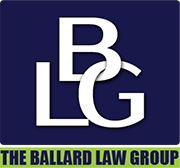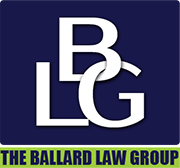If you have been injured in an accident and have a personal injury claim, you may be concerned about how filing for bankruptcy could impact the money you receive for that claim. The fact is, bankruptcy can be a good financial choice for someone who is facing serious financial issues. However, choosing to file for bankruptcy can have an impact on money recovered in a personal injury suit.
Personal Injury Claims Must be Disclosed
When you choose to file for a Chapter 7 or Chapter 13 personal bankruptcy, you will be required to disclose all your assets. These assets will belong to the bankruptcy estate—in a Chapter 7 bankruptcy assets are sold/used to pay back creditors and in a Chapter 13 bankruptcy excess assets or funds can increase how much you must pay to your repayment plan each month. Because a personal injury claim can be considered an asset, you must disclose it in your bankruptcy. Failing to mention a pending personal injury claim can lead to problems as you try to proceed with your bankruptcy.
Available Atlanta Bankruptcy Exemptions
When you file for bankruptcy, there are several bankruptcy exemptions available that allow filers to keep certain assets. When an asset is exempted, that asset or money cannot be used to pay back creditors. In Georgia, there is a specific exemption for personal injury claims. This exemption allows you to exempt up to $10,000 of the money recovered in a personal injury claim, which means the filer can keep that money. Additionally, every person filing for bankruptcy has a “wild card” exemption—if unused elsewhere, this exemption can be used to allow you to keep more of your personal injury settlement. Properly applying exemptions to maximize what you can keep of your settlement can be complicated. This is why it is important to consult an experienced bankruptcy attorney if you have a personal injury settlement you would like to protect. Settlement money over and above your exemption may be used to pay off your debts.
Timing Matters
It is also important to note that the timing of your personal injury case and your bankruptcy filing matter in determining how a settlement would be impacted. In a Chapter 7 bankruptcy, if the injury occurs before you file for bankruptcy, the claim and settlement awarded from the claim become a part of the bankruptcy estate. If the injury occurs after you file for bankruptcy, it is not part of the estate and belongs to you. In a Chapter 13 bankruptcy, it doesn’t matter when a personal injury occurs—the settlement will belong to the estate and can impact your repayment plan.
Get Free Atlanta Bankruptcy Advice Today
If you have found yourself in a situation where you are pursuing both a personal injury claim and a bankruptcy, make sure you seek the legal guidance of an experienced Atlanta bankruptcy attorney. The skilled attorneys at the Ballard Law Group have years of experience guiding individuals through the ins and outs of the bankruptcy process and are ready to answer questions you may have about your specific situation. To find out more about how bankruptcy can help your financial future, contact us for a case consultation by calling (404) 800-9939.


